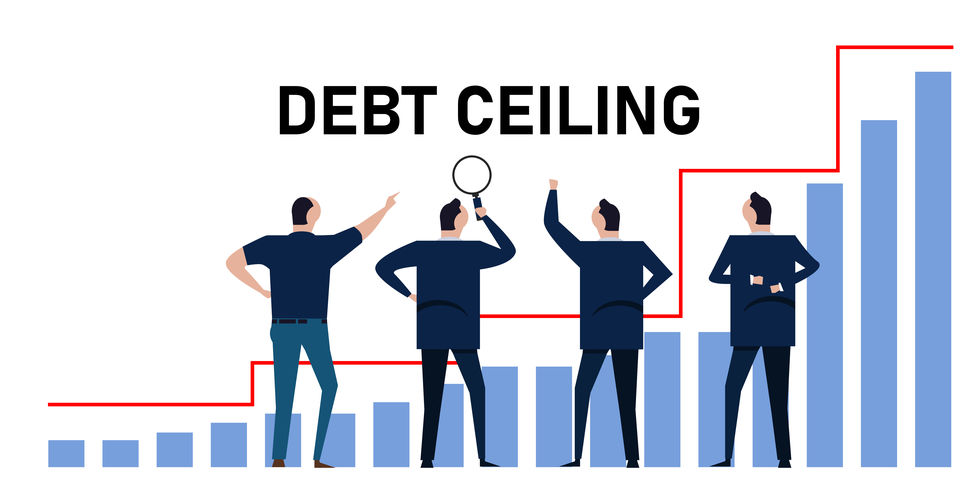Archive for 2023
Dependent on “Search” for Lead Flow? AI Might Replace the Links and Become a Personal Concierge
May 30, 2023 Even if an entire generation is unimpressed with ChatGPT or newfangled AI technologies, the pre-existing Q&A experience as we know it on web search might change regardless. Google, for example, is currently experimenting with “generative-AI” responses for its search bar.
Even if an entire generation is unimpressed with ChatGPT or newfangled AI technologies, the pre-existing Q&A experience as we know it on web search might change regardless. Google, for example, is currently experimenting with “generative-AI” responses for its search bar.
While Google emphasizes that it is experimental and available only to a select group of people, the technology is being marketed as a way for users to find what they’re looking for in faster, easier ways. And it’s not just about “chatting.” According to one user testing the technology, the search query for “buy surfboard online” resulted in Google’s AI offering tips on the fly about what to consider when making a purchase. Below all the advice are the links to buy surfboards. The difference is that AI has now intervened in the customer’s journey and told them what to be looking for.
This sort of shopping experience was recently pondered in a deBanked blog post about small business lending in which an AI did more than just provide a list of names to respond to a query, it also answered personalized questions that guided a user toward a decision, leaving the potential sources vying for that customer out of the conversation.
Indeed, Google emphasizes that its generative-AI search is built for follow-up questions that will enable users to “dive deeper on a topic in a conversational way.”
Should the structure go from experimental to the default search experience, the implication is that AI would be driving the customer decision, whereas currently Google limits itself to offering a list of links in an order that’s roughly based on who paid the most. From here, customers are left to their own devices to acquire the knowledge they need to make a decision. That would end in an AI-oriented experience.
You can learn more about Google’s generative AI search here.
Revenue-Based Financing? This Team of Entrepreneurs Learned The Trade in Argentina
May 26, 2023 Javier Alvarez Wrobel and Juan Cruz Alvarez Wrobel, brothers from Argentina, have worked in the lending business together for years. They’re even co-founders of a company that’s based in Buenos Aires.
Javier Alvarez Wrobel and Juan Cruz Alvarez Wrobel, brothers from Argentina, have worked in the lending business together for years. They’re even co-founders of a company that’s based in Buenos Aires.
It’s taught them a lot. While Americans fret over single digit inflation, Argentina’s rate of inflation soared past 100% earlier this year, the highest rate since it began dramatically increasing in 2018. That makes it very challenging to lend in the country.
“Due to the recent complicated economic situation, lots of lending companies in Argentina have closed,” said Javier. “I’d say there are only around 30 to 40 companies in the country doing what we do right now.”
For a population that largely also has little or no credit history, credit reports generally can’t be relied upon to approve loans at scale.
“That is why a lot of the underwriting in Argentina, when people request a loan, is made based on the cash movements on the consumers bank accounts,” said Javier.
That’s what they learned how to do. And with such a skillset as theirs, they were intrigued to learn that a similar model had taken off in the United States, one where business owners can get approved for funding based on data mostly available in their bank statements, revenue-based financing. The result was an expansion to the US and their launch of Upfunding Capital in Miami, FL in 2022. There, they teamed up with a third co-founder named Paula Sborovsky, who previously worked in Entre Ríos, a province directly north of Buenos Aires that sits along the border of Uruguay.
In the process, they’ve established a niche, a clientele mostly made up of immigrant business owners that have an Individual Tax Identification Number (ITIN) but not a social security number. The thin credit or lack of credit that may come with that is something they’re already used to.
“As we work with the Latino community, most of our clients are actually non-US citizens or at least not US born,” Javier said.
Javier said that the best and most reliable information they use for approvals is the way business owners conduct transactions on a day-to-day basis. Nevertheless, the company is pacing itself, testing out its technology and its underwriting models. Upfunding hopes to ramp up its volume in the second half of this year.
The work so far has been personally rewarding for the Upfunding team.
“It’s amazing to see,” said Javier, “for example, I got the chance to speak to a guy that is actually Argentinian living [in the US], trying to sell shoes, and seeing that we can actually offer a product for them to improve their own business that’s just starting out, for us is amazing because we are actually doing the same right now.”
Got an Offer to Settle Your Debts? Be Careful!
May 25, 2023 “Imagine a small business owner who is getting calls and demand letters and lawsuits from their creditors,” said Steven Zakharyayev, Managing Attorney at Law Offices of Steven Zakharyayev, PLLC, “then this debt relief company comes along and claims they can help. Desperation makes them an easy target.”
“Imagine a small business owner who is getting calls and demand letters and lawsuits from their creditors,” said Steven Zakharyayev, Managing Attorney at Law Offices of Steven Zakharyayev, PLLC, “then this debt relief company comes along and claims they can help. Desperation makes them an easy target.”
Unlawful debt settlement schemes can take many forms but a common one is a third party enticing a merchant into believing that they can resolve their debts at a discounted price when there is no basis for that to be true.
“[The scammers’] marketing preys on small business owners who may be in tough financial situations with ‘pie in the sky’ promises,” Zakharyayev said.
Common red flags indicating a potential fraudulent marketing pitch include requests for upfront payments, down payments, or monthly installments. Third party assistance in and of itself is not necessarily unlawful but the debtors should conduct thorough due diligence on any proposal they receive.
“Consumers can look up the debt negotiation companies and find out if they are legit and how they work by looking up reviews and searching up the company,” said Manny Yosipov, CEO at Advanced Recovery Group.
Debtors should also take care to understand whom it is they are even speaking with. Sometimes the identity of the person calling to address a debt is not clear. Is it a creditor? A collections firm acting on behalf of a creditor? Or a third party with no relationship to the creditor at all? This can become all the more confusing when more than one communcations channel is being used.
“The amended FDCPA allows debt collectors to use newer technologies, such as email and text messages, to communicate with consumers regarding their debts, subject to certain limitations, which protect consumers against harassment or abuse,” said Yosipov.
Meanwhile, Zakharyayev emphasizes the importance of creditors informing clients about the types of communications they might receive from third-party scammers and the unrealistic promises these scammers may make to settle their debt. Merchants should be aware that debt settlement companies often charge significant fees to settle debts that merchants could likely handle themselves.
“Businesses and their customers are usually better off in the long run if they communicate and are transparent with their financial records,” said Zakharyayev. “Once the debt settlement companies get involved, the situation gets more complicated and ironically less likely to settle.”
Prosper Originates $631.9M in Q1
May 23, 2023Prosper Marketplace originated $631.9M in loans in the first quarter of 2023, up 13% YoY. Ninety percent of Prosper’s Q1 2023 loans were funded through their Whole Loan channel, down slightly from the 92% in Q4 2022. The company generated a loss of $9M on about $38M in revenue.
Prosper is one of the few fintech lenders from the ancient era to somewhat stick with its original business model. Although it moved away from peer-to-peer to Whole Loan sales, it did not become a bank like its competitors LendingClub and SoFi did. Prosper also seems to have stabilized after some tumultuous growth years in the pre-covid era.
How Raising The Debt Limit Affects MCA
May 22, 2023 Every few years, particularly during the administration of a divided government, the threat of a default on raising the debt limit of the United States rears up in the political and economic spheres. While both sides tend to play chicken before ultimately settling on a negotiated outcome that they can sell to their bases, the current debt limit crisis feels more serious as the X date of June 1 looms with no settlement in site.
Every few years, particularly during the administration of a divided government, the threat of a default on raising the debt limit of the United States rears up in the political and economic spheres. While both sides tend to play chicken before ultimately settling on a negotiated outcome that they can sell to their bases, the current debt limit crisis feels more serious as the X date of June 1 looms with no settlement in site.
This crisis has a significant effect on various industries, and amongst them is the merchant cash advance business. MCA companies are heavily relied upon by small businesses for immediate financial needs, and understanding what this crisis means for the industry is crucial for getting through it unscathed.
Let’s compare the current landscape to running a business:
When a company opts to increase its debt limit, it essentially seeks to borrow more money, trading liability for an asset. For example, if the company’s equity is worth 100 billion dollars, borrowing doesn’t change this figure as long as the borrowed amount is an idle asset in their account.
The U.S. government should theoretically operate similarly to a regular company, borrowing only what it can pay back, but with the only growing expenses, when the government borrows money and raises the debt ceiling, it doesn’t always have enough funds for repayment.
In addressing its fiscal shortfall, the government operates distinctly from a conventional business. Unlike a company compelled to confront its financial mismanagement head-on, the government possesses the ability to print additional U.S. dollars. However, this course of action inherently devalues the currency.
For the sake of illustration, consider the worth of the dollar as a fixed entity. Suppose every thousand dollars equates to one bar of gold. If we slice this bar of gold into a thousand pieces, each piece represents $1. When the government initiates the printing of more money, it is essentially the government carving that same bar of gold into tinier segments. Meaning, if sliced in 2,000 pieces, the same bar of that once held the value of $1,000 is now $2,000. The total quantity of gold remains constant, regardless of whether it’s divided into 1,000 or 2,000 slices. However, with increased currency in circulation, each dollar—like every slice—holds less value, thereby shrinking everyone’s piece of the proverbial gold bar.
Now that we’ve explained the dangers of wantonly raising the debt limit, how does this affect MCA companies?
The debt limit crisis’s impact on MCAs is pronounced due to the time-value factor of money.
Suppose a mortgage of $100,000, repaid with interest over 30 years, amounts to $300,000. If the value of the dollar reduces significantly over this period – say by 50% – the bank, despite appearing to make a profit, loses money. That’s because the money they receive later has less purchasing power than the same amount ten years prior.
This reality can be acutely felt in periods of high inflation, such as in 2021 and 2022, where inflation neared 9%, and many felt it was closer to 20%. We all feel it during our grocery shops, the prices of experiences, and in other areas of our lives. Here, $100 can only buy what $80 could a couple of years ago, eroding the value of the interest charged.
At Better Accounting Solutions, a number of the MCA businesses we’re working with are concerned with this rapid devaluation of the money they’re funding.
The key factor to consider is the duration for which the capital will be deployed and how it will be recouped. For instance, if you advance $1 million at a 24% factor rate over 24 months and the debt ceiling is raised causing the dollar value to drop, your returns in the second year might be significantly less valuable despite the factor rate. This depreciation means that even though you’re receiving the agreed-upon returns, the funds’ purchasing power is considerably less, translating into a net loss of what would have been 13.5% over the past two years.
However, if you’re giving out (after careful consideration) riskier short-term advances with higher factor rates, daily repayments, and shorter durations, the situation would be different. Here, you’re receiving your return within, say, six months. Even if the dollar’s value decreases by 20% over a year, you’re less affected because your returns are realized in a shorter time and at higher rates, leaving you with a net gain.
Therefore, the debt limit affects MCA providers significantly, whether it’s being covered in the news or not. The devaluation of the dollar, high inflation rates, and other economic consequences of a debt limit crisis can dramatically impact the returns on cash advance businesses, especially those with longer repayment periods. As a player in the finance industry, it’s crucial to consider these elements when making advances or lending money. By factoring in these variables, providers can better protect their interests, minimize risks, and ensure the stability of their operations even during times of economic uncertainty.
Register for The 5th Annual Alternative Finance Bar Association Conference
May 22, 2023The AFBA Conference is BACK.
 If you are an attorney in this industry, you won’t want to miss the Alternative Finance Bar Association’s (AFBA) 5th Annual Conference, here in NYC June 5-6. They will be covering current events in the legal world of alternative finance, including upcoming NY disclosure requirements, recent caselaw developments, latest in collections law, regulatory current events and a lot more. This is an extremely reputable bar association with top notch attorneys in the field.
If you are an attorney in this industry, you won’t want to miss the Alternative Finance Bar Association’s (AFBA) 5th Annual Conference, here in NYC June 5-6. They will be covering current events in the legal world of alternative finance, including upcoming NY disclosure requirements, recent caselaw developments, latest in collections law, regulatory current events and a lot more. This is an extremely reputable bar association with top notch attorneys in the field.
For more detailed information & a registration link, click here: https://www.eventbrite.com/e/afba-5th-annual-conference-tickets-622494496797
deBanked Updates Some Resource Pages
May 21, 2023deBanked has made the following edits to its website:
|
1. The FREE UCC SEARCH link list is now presented in map format.
2. State regulations can now be tracked in map format. 3. deBanked’s signature video podcasts are now available in audio-only format on spotify. |
Murray Loses Election for ENS Foundation Directorship
May 21, 2023 deBanked president Sean Murray was one of two nominees earlier this month for an open director position of the ENS Foundation. ENS stands for the Ethereum Name Service, a protocol that allows users to substitute human readable usernames for long hexadecimal strings commonly associated with crypto addresses.
deBanked president Sean Murray was one of two nominees earlier this month for an open director position of the ENS Foundation. ENS stands for the Ethereum Name Service, a protocol that allows users to substitute human readable usernames for long hexadecimal strings commonly associated with crypto addresses.
Instead of one’s address looking like this: 0x64233eAa064ef0d54ff1A963933D0D2d46ab5829, it could be debanked.eth or debanked.com or sean.debanked.com or some other domain name owned by the user.
Murray has been an advocate for ENS names as a form of web-based identity. He was one of the first 500 people in the world to use a .com address as an ENS name and the first in the world to turn a .com address into an NFT on mainnet using the official ENS Namewrapper contract. debanked.com, for example, is not only a website address, but also a crypto address and an NFT. Murray has been studying crypto since 2014 and deployed his first deBanked smart contract to ethereum in 2021.
Murray lost the election in a blowout but has expressed that his candidacy led to some positive changes in the ENS ecosystem. The ENS Foundation represents the technology’s official DAO. Murray’s competition was more qualified than he was for the role. The victor, Alex Van de Sande, helped launch ethereum, launched the first Ethereum wallet and Web3 Browser, and was a co-founder of ENS.
“I anticipate there eventually being some crossover between the traditional financial system and blockchain technology,” Murray said. “A username system would be an integral part of that. I’m not into speculating on coins or anything of that nature.”





























